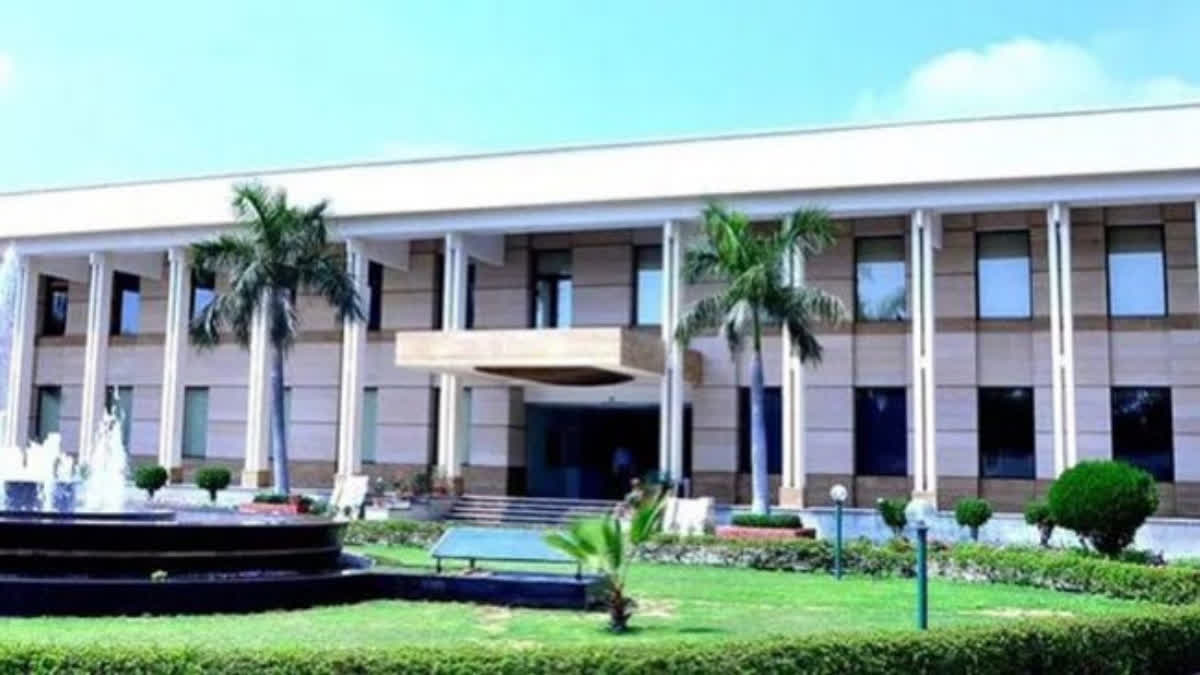New Delhi: The announcement by the Afghan Embassy of the permanent closure of its operations in New Delhi has raised multiple questions when it comes to India's policy towards Afghanistan. Does this mean that bilateral relations between India and Afghanistan end here? Or India as usual will continue to take a neutral stand and tread cautiously? Or can it be considered a turning point for India-Afghan relations
ETV Bharat spoke to experts on this development. India's former ambassador to the US, Meera Shankar said, "The closure of the Afghanistan Embassy in Delhi reflects Afghanistan’s internal divisions as the Embassy had carried on from before the Taliban takeover". She said, "Like most of the international community, India has not recognised the Taliban government over concerns about its treatment of women and minorities. But, we have traditionally had good ties with the Afghan people and have provided aid to Afghanistan even after the Taliban takeover on humanitarian grounds. We continue to evaluate the situation."
A similar move was seen on September 30 this year, wherein a statement carrying the seal of the Ministry of Foreign Affairs of the Islamic Republic of Afghanistan announced the closure of the Embassy of Afghanistan in Delhi. Meanwhile, just after that, a report surfaced that stated that a letter had been sent by the mission to India's Ministry of External Affairs informing it about the closure. The MEA then, refused to comment on the issue.
Ever since the Taliban took over Kabul, the functioning of the mission in Delhi has been under debate. The mission as it may be called has been a 'stateless mission' as it does not represent the current rulers of Kabul, the Taliban with whom India has no diplomatic ties. This has triggered confusion among the Afghans in India.
Furthermore, India's former ambassador to Jordan, Libya and Malta Anil Trigunayat said, "The Afghan Ambassador was not recognised by the Taliban the sending State left Delhi some time ago to a third country and several remaining diplomats have also left, hence, the Afghan Embassy became vacant and closed. However, like many other countries, we have not recognised the Taliban government, but missions have been maintained to serve their nationals".
Trigunayat said, "India has a technical-level mission in Kabul. This situation had happened in the past, too. You will recall that when the Taliban took over power post-Doha Agreement and India at the UNSC were in the rotational chair when the UNSC resolution was passed and the Taliban was expected to fulfil various obligations and that broadly stands even now".
Now that the Afghan Embassy today has announced the permanent closure of its mission here in Delhi, it remains to be seen what India does when it comes to maintaining ties with Kabul, and in a way, it is a 'diplomatic challenge ' for India. It is pertinent to note that although India does not formally recognise the Taliban regime in Kabul, New Delhi is maintaining a 'technical team' in Kabul which continues to provide all kinds of facilities to Afghan travellers and traders to India. The relationship between India and Afghanistan after the Taliban takeover has been strange.
However, in its official statement announcing the closure on November 24, the Afghan Embassy said, "The Embassy of the Islamic Republic of Afghanistan in New Delhi regrets to announce the permanent closure of its diplomatic mission in New Delhi".
"Effective from November 23, owing to persistent challenges from the Indian government. The decision follows the Embassy’s earlier cessation of operations on September 30, a move made in the hope that the Indian government stance will favourably change to let the mission operate normally", the statement read.
"Unfortunately, despite an eight-week wait, the objectives of visa extension for diplomats and a shift in the Indian government's conduct were not realised. Given the constant pressure from both the Taliban and the Indian government to relinquish control, the Embassy faced a difficult choice", it noted. Now all eyes are on India's stand on Afghanistan and where the relations stand going further because most countries like China, UAE and Russia have recognised the Taliban regime, which automatically, puts India under pressure to reconsider its decision on the Taliban. India's Ministry of External has not reacted to the development yet.
Also read: Afghanistan announces permanent closure of its Embassy in New Delhi



